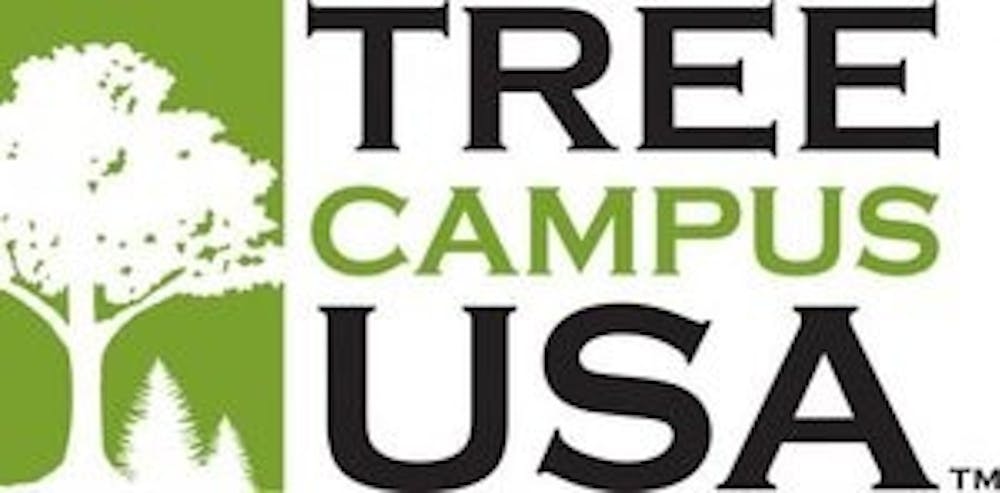For the fourth time, Auburn University has won the Tree Campus USA designation from the Arbor Day foundation.
The award has five criteria that include having a tree campus advisory committee, having a campus tree care plan, having a campus tree program with dedicated annual expenditures, having an Arbor Day observance, and having a service learning project.
Gary Keever, professor in the department of horticulture, compiled the information and submitted it based on what has been done at the university, which awarded Auburn with Tree Campus USA status.
"It's prestigious in the sense that it gives us a positive publicity about tree planting on campus," said Art Chap, professor in the school of forestry and wild life sciences and professor in forest biology.
"It also encourages service projects from faculty, staff and students, it's very all inclusive and it made the university aware of the value of trees. We meet these particular criteria every year and it includes everything from spending a certain percentage of the budget on trees such as tree planting, removal and pruning," Chap said.
Chap was involved in the writing aspect of the award while Keever took the lead, Chap said.
The Arbor Day Foundation is a non-profit organization that began in 1972, said Gail Riese, communications and marketing specialist. It enhances trees and tree protection.
"Its primary mission is to inspire people to plant, nurture and celebrate trees," Riese said. "I think that this particular designation of being a tree campus USA really recognizes the university's achievements when it comes to best tree management practices."
Auburn has several recognitions of Arbor Day on campus, Chap said. In the last few years it has been a tree give away at the arboretum.
The facilities management landscaping staff maintains more than 600 premium acres, which is land that does not include things like the woods or arboretum, Riese said.
The Tree Campus USA designation has to be recertified each year, which means Auburn must resubmit their information each year.
"We have these five standards as a bench mark and we have to continue to show that we meet these standards," Keever said. "New trees are being planted all of the time, as you walk around campus you may see some of the workers with landscape services pruning trees and doing various other things to promote their health."
The university has also contracted with two firms that will help develop a campus landscape master plan.
It will serve as a template for Auburn for the next 30-40 years in terms of planting trees on the street and providing guidelines to help Auburn make decisions to create a unified campus where trees play an important role, Keever said.
As part of the criteria for this award, there must be a service-learning project.
Auburn students have participated in this aspect of the criteria. "The school of forestry and wildlife sciences students planted more than 600 Longleaf pine seedlings on campus," Riese said. "Its actually been part of an ongoing services learning project that they have been involved with for the last two years."
Auburn was the first school in Alabama to be recognized for this award and is now using the award to promote trees on campus including proper maintenance, Chap said.
Riese believes that by receiving this award, it demonstrates the university's commitment to its natural resources by establishing and sustaining the healthy campus community.
"It recognizes that the university has made a commitment to its trees both in terms of planting more trees, taking care of those trees and promoting the awareness and benefits that trees have in our lives," Keever said.
Do you like this story? The Plainsman doesn't accept money from tuition or student fees, and we don't charge a subscription fee. But you can donate to support The Plainsman.





